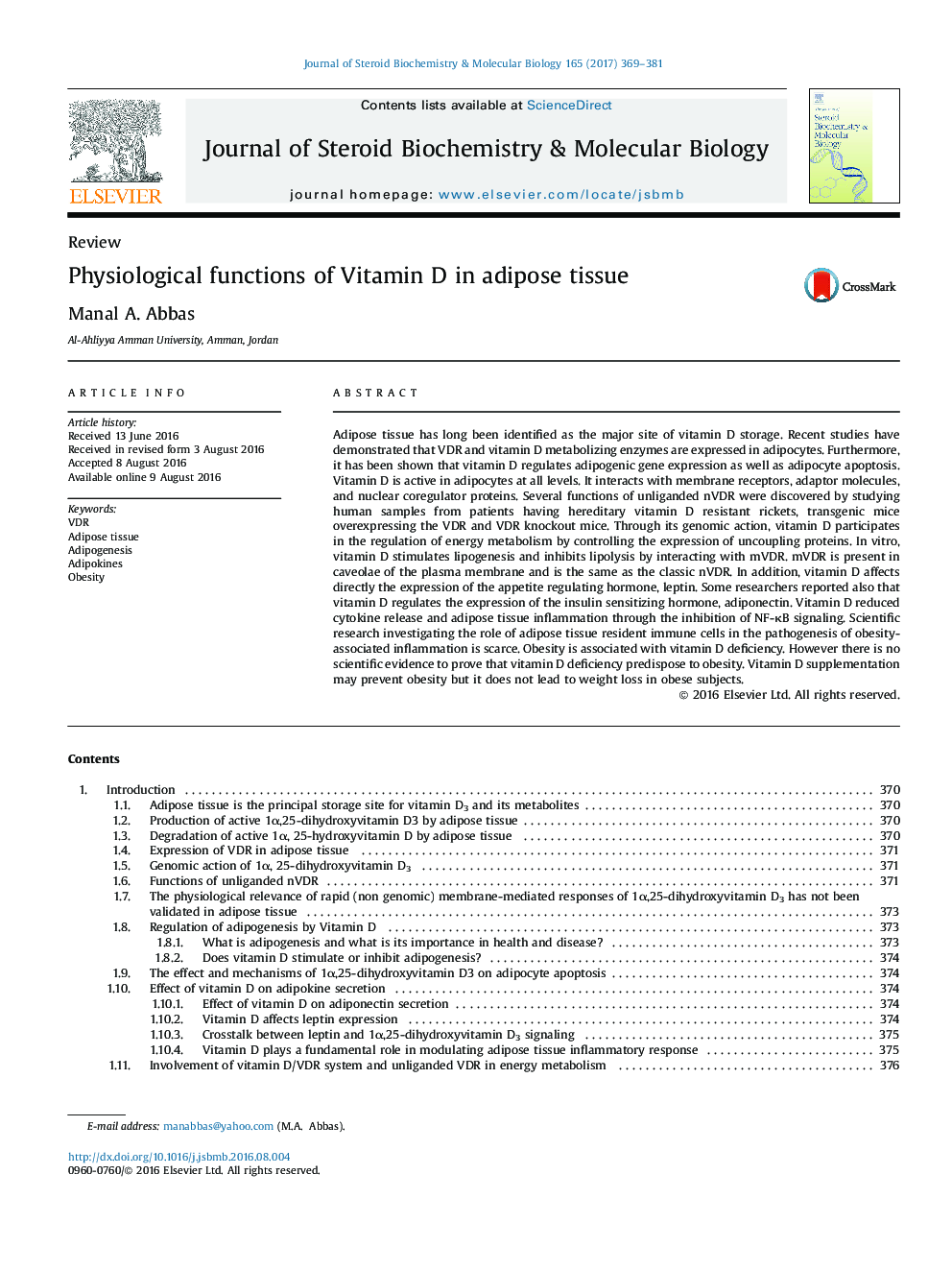| کد مقاله | کد نشریه | سال انتشار | مقاله انگلیسی | نسخه تمام متن |
|---|---|---|---|---|
| 5513149 | 1540982 | 2017 | 13 صفحه PDF | دانلود رایگان |

- âââââââVitamin D metabolizing enzymes and VDR are expressed in adipose tissue. Vitamin D regulates adipogenesis and adipocyte apoptosis.
- Through its genomic action, vitamin D regulates energy metabolism by controlling the expression of uncoupling proteins and the appetite suppressing hormone leptin.
- MmVDR is present in caveolae of the plasma membrane and is the same as the classic nVDR.
- Vitamin D reduces adipose tissue inflammation.
- Obesity is associated with vitamin D deficiency but vitamin D deficiency does not predispose to obesity.
Adipose tissue has long been identified as the major site of vitamin D storage. Recent studies have demonstrated that VDR and vitamin D metabolizing enzymes are expressed in adipocytes. Furthermore, it has been shown that vitamin D regulates adipogenic gene expression as well as adipocyte apoptosis. Vitamin D is active in adipocytes at all levels. It interacts with membrane receptors, adaptor molecules, and nuclear coregulator proteins. Several functions of unliganded nVDR were discovered by studying human samples from patients having hereditary vitamin D resistant rickets, transgenic mice overexpressing the VDR and VDR knockout mice. Through its genomic action, vitamin D participates in the regulation of energy metabolism by controlling the expression of uncoupling proteins. In vitro, vitamin D stimulates lipogenesis and inhibits lipolysis by interacting with mVDR. mVDR is present in caveolae of the plasma membrane and is the same as the classic nVDR. In addition, vitamin D affects directly the expression of the appetite regulating hormone, leptin. Some researchers reported also that vitamin D regulates the expression of the insulin sensitizing hormone, adiponectin. Vitamin D reduced cytokine release and adipose tissue inflammation through the inhibition of NF-κB signaling. Scientific research investigating the role of adipose tissue resident immune cells in the pathogenesis of obesity-associated inflammation is scarce. Obesity is associated with vitamin D deficiency. However there is no scientific evidence to prove that vitamin D deficiency predispose to obesity. Vitamin D supplementation may prevent obesity but it does not lead to weight loss in obese subjects.
127
Journal: The Journal of Steroid Biochemistry and Molecular Biology - Volume 165, Part B, January 2017, Pages 369-381